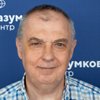Lines of confrontation. In August, the Ilko Kucheriv Democratic Initiatives Foundation and the Razumkov Centre Sociological Service conducted a public opinion poll to identify the level of public trust in various state institutions.
Quite expectedly, in wartime, the level of trust in those who provide the country's defence increased sharply. Say, compared to August of the previous year, the share of those who trust the Armed Forces of Ukraine rose from 68% to 94%, the National Guard — from 54% to 87%, volunteer units — from 53.5% to 81%, the border guards — from 55% to 83%. The level of trust in the Armed Forces exceeds 90% in all regions of the country without exception.
The number of those who trust Ukraine’s President rose from 36% to 80%, of those who trust volunteer and public organisations also increased (from 64% to 84.5% and from 47% to 64.5%, respectively).
An increase is observed in the level of trust in such institutions as the Government of Ukraine (from 21.5% to 41%), the Verkhovna Rada (from 19% to 35%), the Public Prosecutor's Office (from 18% to 35%), the National Anti-Corruption Bureau (from 15% to 29), the Specialised Anti-Corruption Prosecutor's Office (from 14% to 29%). However, even now the share of those who trust them is lower than of those who do not. This may indicate that the "halo of mistrust" in those institutions formed in previous years is not easy to do away with (they still have to work a lot to this end).
However, there are public institutions and groups in Ukraine that remain not trusted even now: if a year ago 15% of respondents trusted the state apparatus (officials), now, not much more (20%) do the same; 15.5% trusted courts a year ago, and 18% now; political parties — 16% and 14.5%, respectively.
Hence, although many people talk about the growing unity of Ukrainian society against the background of the Russian aggression (which is indeed the case), social confrontation lines do exist in Ukrainian society and seem to be widening. As one may see from the poll results, there is confrontation between the patriotic part of society (which constitutes the vast majority) and a significant part of the social elite, identified by those polled with the notions of "officials", "judges" and "leaders of political parties".
The unity of society presumes fighting against those who pose a threat to it. Apart from Russia, this threat can also be seen in certain social groups within Ukrainian society.
The Security Service of Ukraine recently published an interesting case of a judge of the Northern Commercial Court of Appeal, Volodymyr Kuksov, who frankly admits that he waits for the arrival of the Russian troops, does not believe in the crimes of Russians in Ukraine, accuses "the followers of Bandera" of such crimes and complains that "there are plenty of fascists around".
Such cases prompt the public to equate the notions of a "moral monster" and a "supporter of Russia". The social groups that have traditionally been stigmatised in Ukraine are being stigmatised even more, since many of their representatives are believed to be ideologically and mentally close to Russia. Actually, the Gauleiters in the eastern and southern regions who agreed to serve the Russian invaders are mainly former officials, minions of the law and representatives of certain political parties, fitting perfectly into this picture.
Therefore, such justified hatred of Russia will result in the "zero tolerance" for some representatives of the Ukrainian elites who gravitate to the "Russian world". And the process of cleansing in Ukrainian society, prompted by this war, is only beginning.
Results of the public opinion poll conducted by the Ilko Kucheriv Democratic Initiatives Foundation and the Razumkov Centre Sociological Service on August 5-12, 2022, with the grant support from the Bremen University and the International Renaissance Foundation.
Face-to-face interviews were held in Vinnytsia, Volyn, Dnipropetrovsk, Zhytomyr, Transcarpathian, Zaporizhia, Ivano-Frankivsk, Kyiv, Kirovohrad, Lviv, Mykolaiv, Odesa, Poltava, Rivne, Sumy, Ternopil, Kharkiv, Khmelnytskyi, Cherkasy, Chernihiv, Chernivtsi regions and the city of Kyiv (in Zaporizhia, Mykolaiv, Kharkiv regions – only in the territories controlled by the Ukrainian government and free of any hostilities).
The sampling structure reproduces the demographic structure of the adult population of the territories where the survey was conducted as of the beginning of 2022 (by age, sex, settlement type).
2024 respondents in the age of 18 and more were polled. The theoretical sampling error does not exceed 2.3%. However, additional systemic deviations of the sample may be caused by the Russian aggression, in particular, forced evacuation of millions of citizens.
Source:
https://razumkov.org.ua/statti/vnutrishnii-front-linii-protystoiannia




